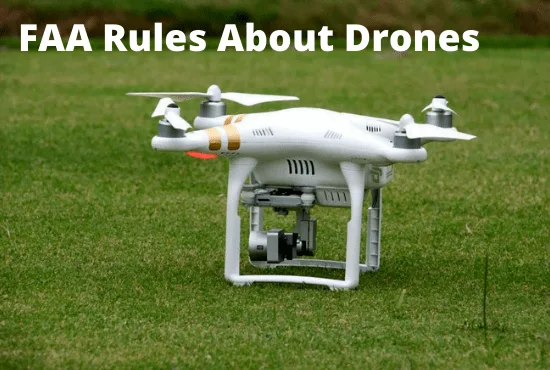Is it necessary to register and get a license to fly a drone? This is the most frequently asked question from future drone owners.
Under the law of January 3, 2018, users of recreational drones are required to register their drones with the FAA. They must also mark the exterior of the drone with the registration number and provide proof of flight registration. In addition, pilots are only allowed to fly for recreational purposes.
This next part is very important: pilots must keep the drone below 400 feet in “Class G” or uncontrolled airspace. It simply refers to the airspace where the FAA does not control manned air traffic, meaning you can safely fly your drone there. Fortunately, most drones and their accompanying mobile apps offer guidance on identifying the correct airspace and altitude.
What Is a Drone License?
A drone license, more officially known as a long-term pilot certificate, is one of the new requirements stemming from 14 CFR Part 107 rules implemented by the FAA in 2016. The Part Rules 107 have been created as a legal framework for commercial activities drone flights in the United States.
Why Is It Needed?
In addition to requiring commercial drone pilots to obtain a drone license, Article 107 also imposes several bans on drone flights. These restrictions include not flying drones over moving people or vehicles, flying only within sight, and always granting access rights to manned aircraft. Section 107 regulation continues to evolve and has been the subject of several rounds of review and revision in recent years.
License to Fly Drones for Commercial Purposes
A license is required to fly your drone for commercial purposes. If you have the slightest desire to use a drone to generate money in any way, do so wisely and get a license so that you are never outside the law. It doesn’t seem dangerous that your friend pays you for some great photos you took with a drone while walking in Middle Teton. But if you don’t have a license to fly a drone, you’re acting outside the law. Even if you don’t raise funds for the activity, it can still be considered a commercial flight with your drone, and requires a permit. Prevention is better than cure.
With effective training in drone schools like DART Drones to pass the General Unmanned Aerial Test Part 107 – Minor Test. There is no reason to be unsafe and validate to get your pilot’s license. Drone, so you are covered in case you decide to get it pay for your confusion with the drone. It’s worth it.
Laws and Regulations for Using Drones in Some States.
In addition to federal laws, several states have made their own drone regulations. The following is a breakdown of drone rules by state:
California
The most populous state in the Union has three laws related to drones. Article 1708.8 of the Civil Code prohibits the use of drones to record others without their consent. SB 807 grants immunity to the first respondent who causes damage to an unmanned vehicle that disturbs the first respondent during emergency services. Accordingly, AB 1680 penalizes the fact that drones disrupt the activities of first responders during an emergency.
Georgia
HB 481 prevents local governments in Georgia from adopting drone regulations after April 1, 2017. The law also allows state and local governments in Georgia to regulate the launch or landing of drones on public land.
The Georgia Department of Natural Resources also has rules and laws prohibiting the use of drones in national parks and historic sites in Georgia, with a few exceptions to exemptions for professional business projects that could help generate revenue or promote the site. Such exceptions require prior consent.
Montana
In Montana, SB 196 states that information obtained through the use of a drone is admissible in court only when obtained with a search warrant or exemption recognized by the court. HB 644 prohibits the use of drones that interfere with forest fire prevention efforts.
How to register your drone?
Register your drone with the FAA Drone Zone under Section 107 or the Recreational Pilot Exception. All drones must be registered except those weighing 0.55 pounds or less (less than 250 grams) and flown only under the recreational pilot exemption.
Drones registered under Section 107 may be used for recreational purposes as well as Section 107. Drones registered under the Recreational Pilot Exemption may not be used for Part 107 flights.







